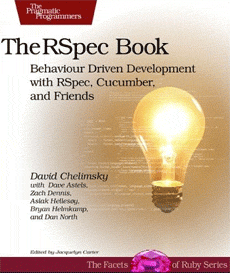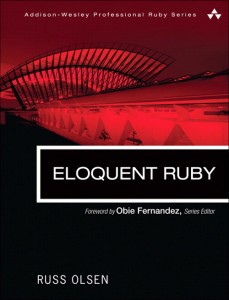
Maybe I’m weird (actually, there’s no maybe about it) but when I first heard about Rails 3.1 getting CoffeeScript and Sass out of the box, I wanted to see how it worked and how smooth the process would be. So like quite a few people on IRC I’ve seen, I installed edge Rails (currently 3.1.0-beta) and got playing. (Yes, it’s PRE-RELEASE. Expect mischief!)
I hit a couple of stumbling blocks on my way so I thought I’d explain what I found to be the smoothest way through to getting to play with the new Rails 3.1 goodies. I’ll only take you as far as making some changes and seeing the results, though – you’re on your own from there! Read More







 Guess what? Yep, the forthcoming Rails 3.1 is going to be bringing in a few new friends as dependencies:
Guess what? Yep, the forthcoming Rails 3.1 is going to be bringing in a few new friends as dependencies: 
 Today there are *drumroll* 18 new jobs to share from the
Today there are *drumroll* 18 new jobs to share from the  As an outspoken and opinionated guy,
As an outspoken and opinionated guy, 










 I started Ruby Inside in May 2006 as a promotional vehicle for my then in-progress book,
I started Ruby Inside in May 2006 as a promotional vehicle for my then in-progress book,  MacRuby’s lead developer and Apple employee Laurent Sansonetti has today
MacRuby’s lead developer and Apple employee Laurent Sansonetti has today  It’s a newsflash!
It’s a newsflash! 
 It’s been a killer month for new Ruby and Rails jobs over at the
It’s been a killer month for new Ruby and Rails jobs over at the 

 It’s been a dies horribilis for MRI Ruby today with two new security vulnerabilities forcing the release of 3 new recommended production versions of the de facto official Ruby interpreter. The first, a vulnerability in FileUtils.remove_entry_secure affects both 1.8 and 1.9 branches, while the second, a $SAFE mode vulnerability, affects only 1.8.
It’s been a dies horribilis for MRI Ruby today with two new security vulnerabilities forcing the release of 3 new recommended production versions of the de facto official Ruby interpreter. The first, a vulnerability in FileUtils.remove_entry_secure affects both 1.8 and 1.9 branches, while the second, a $SAFE mode vulnerability, affects only 1.8.